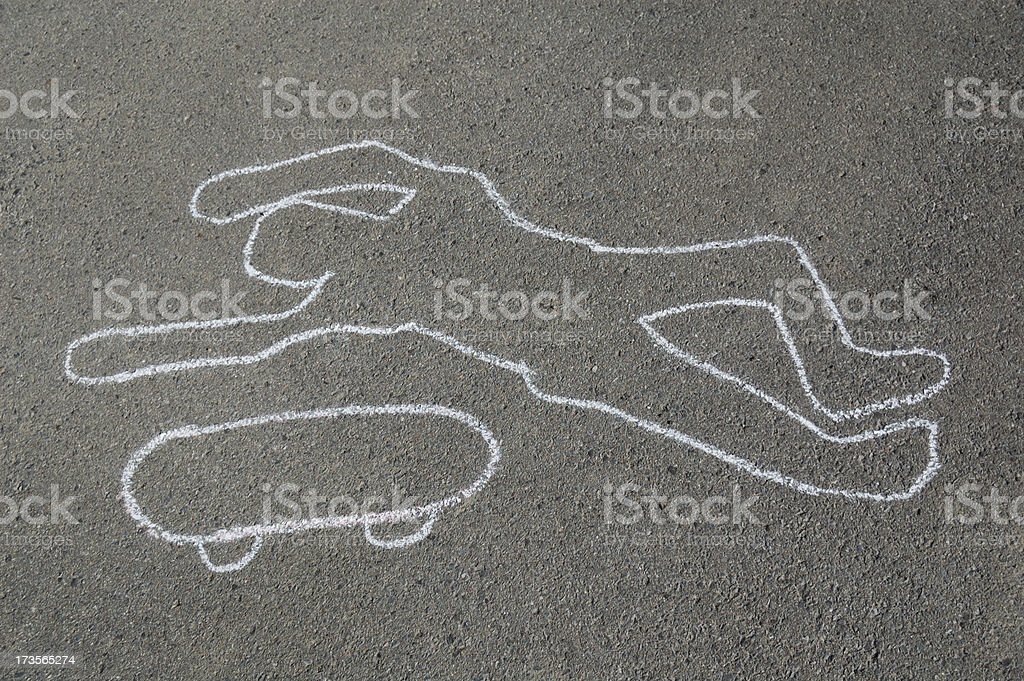Skateboarding is not inherently a crime, but it can be considered illegal in certain areas. Skateboarders must follow local laws and regulations related to skateboarding to avoid legal consequences.
Skateboarding in prohibited spaces, such as private property or public areas with specific restrictions, may result in fines or even arrest. It is important for skateboarders to be aware of their surroundings and the laws in their area to minimize the risk of legal issues. Skateboarding has been a popular activity for decades, but it has also been a source of controversy. While some people view skateboarders as a nuisance and a danger to public property, others see them as athletes and artists. However, regardless of personal opinions, it is important to understand the legal aspects of skateboarding. Areas such as private property, public parks, and sidewalks may have specific regulations regarding skateboarding. Failing to follow these rules can result in fines, damage to property, or even criminal charges. Skaters must be mindful of their surroundings to avoid legal consequences.

Credit: simplemodernsvg.com
Understanding Current Laws And Regulations
Skateboarding has been a popular and much-loved sport for decades now. However, it has long been a subject of controversy, with some cities and towns considering it as a crime. The legality of skateboarding in public spaces has been widely debated, and we are here to explore this topic in detail.
In this article, we will concentrate on the subheading: understanding current laws and regulations. We will focus on the explanation of current laws related to skateboarding, how skateboarders are viewed in the legal system, and the impact of these laws on skateboarders.
Explanation Of Current Laws Related To Skateboarding
- Skateboarding is not legal in some public areas, such as streets, sidewalks, and parks. This is due to the danger it poses for both skateboarders and pedestrians.
- Some states have implemented different rules and safety regulations related to skateboarding, such as mandatory helmets, pads, and specific clothing requirements.
- Private property owners and businesses also have different rules regarding skateboarding, which must be followed by skateboarders to avoid legal complications.
- Municipalities may also levy fines or penalties for those caught breaking the skateboarding laws.
How Are Skateboarders Viewed In The Legal System
- Skateboarders are often viewed as nuisances and troublemakers by some authorities, such as police officers and city officials.
- Skateboarders are penalized more severely for their actions than pedestrians or cyclists because of the damage that skateboards can cause to public property.
- However, in recent years, some states and cities have changed their legal stance on skateboarding and have incorporated skateboarding parks, competitions, and events, recognizing skateboarding as a sport.
Analyzing The Impact Of These Laws On Skateboarders
- Skateboarders often feel as if their rights to use public spaces are being violated due to current laws and regulations.
- The laws have forced skateboarders to resort to skating in public spaces where it is illegal, leading to more encounters with police and legal problems.
- The introduction of skateboarding parks has allowed skateboarders to legally pursue their sport while also improving safety measures.
Understanding current laws and regulations related to skateboarding is essential for both skateboarders and pedestrians’ safety. While some cities and towns may consider skateboarding a crime, skateboarding parks have become popular, recognising the sport. However, skateboarders must follow safety regulations and private property rules.
Ultimately, it is important to find a balance between balancing public safety and upholding skateboarding as a legitimate sport.
Skateboarders Vs. Property Owners
Skateboarding may be a fun activity, but it is also a controversial topic in terms of legality and ownership. There has been a long-standing tension between skaters and property owners, as the latter often view skating as a nuisance and a threat to their possessions.
This blog post delves into the dilemma of skateboarders vs. Property owners and highlights some of the key aspects that contribute to the conflict.
Discussing The Tension Between Skaters And Property Owners
Skateboarding is often considered a crime, and for good reason. Skaters have been known to damage public and private property while performing their stunts, leading to injury or loss. This has caused property owners to view skateboarders with suspicion and hostility, leading to a conflict that has continued for years.
- Skating on private property without permission
- Noisy and disruptive behavior
- Risks associated with skating, such as accidents and injuries
- Property damage caused by skating stunts
Explaining Why Skaters Get Into Trouble With Property Owners
Many skateboarders get into trouble with property owners when they engage in skating activities without seeking permission. Skaters who disregard private property and public rules face legal challenges and run the risk of being subjected to punishment.
- Property owners view skating as a nuisance that can cause damage and injury
- Fear of legal repercussions from local authorities who consider skating on private property without permission to be illegal
- Property owners seeking compensation for any damage caused by skateboarding activities
Legal Repercussions Of Damaging Property While Skateboarding
One of the main reasons why skateboarding is considered a crime is the damage that it can cause to public and private property. Skateboarders who damage property, whether intentional or not, face legal consequences that can be both costly and time-consuming.
- Potential criminal charges if the damage is severe
- Paying for damages caused, which can be quite expensive
- Being sued by property owners for damages incurred as a result of the skating activities
The conflict between skaters and property owners is not likely to end anytime soon. Skateboarding is a fun and thrilling activity, but it is important to follow public and private property rules and seek permission before engaging in it. Property owners have a right to protect their possessions, while skateboarders should find ways to channel their passion for the sport without causing damage or injury.
2 in 1 sneakers?
Skateboarding In Public Spaces
Skateboarding has been a popular form of sport and recreation for decades. However, there have been debates on whether skateboarding is a crime or not. Skateboarding in public spaces is one aspect that has been particularly contentious. In this section, we will delve into the relationship between skateboarding and public spaces, how public spaces are designated for skateboarding, and why there is a need for more designated spaces for skateboarders.
How Are Public Spaces Designated For Skateboarding?
Designating public spaces for skateboarding is a crucial step in ensuring that skateboarders have a safe and legal space to skate.
- Locating spaces that are suitable for skateboarding, such as parks, plazas, and other open areas.
- Interacting with the local authorities to obtain permits and other necessary approvals for skateboarding in public spaces.
- Setting up appropriate infrastructure and amenities in the public spaces, such as ramps, rails, and benches.
- Developing rules and regulations for the public space, including the hours of operation, minimum age requirements, and safety regulations.
Analyzing The Relationship Between Skateboarding And Public Spaces
The relationship between skateboarding and public spaces is complex, and factors such as the location, infrastructure, and accessibility of public spaces can have a significant impact.
- Skateboarding can be noisy and disruptive, particularly in residential areas and public spaces that are not designated for skateboarding.
- Skateboarders sometimes damage property, which can lead to conflicts with property owners and law enforcement.
- Skateboarding can be perceived as a dangerous activity, and some public spaces may be hesitant to designate areas for skateboarding due to liability concerns.
Ultimately, there is a need for a balance between providing safe and legal areas for skateboarders to practice their sport and ensuring that public spaces are not damaged or disrupted.
Advocating For More Designated Spaces For Skateboarders
Given the popularity of skateboarding, there is a clear need for more designated spaces for skateboarders to practice their sport safely and legally.
- Increased safety: skateboarders who have access to designated areas are less likely to skate in potentially hazardous locations, such as busy streets or public areas with pedestrians.
- Reduced conflicts with property owners: skateboarders may damage property when they skate in areas that are not designated for skateboarding. Having designated areas can reduce conflicts with property owners and law enforcement.
- Promotion of physical activity: skateboarding is a form of physical activity that is beneficial for health and well-being. By providing more designated spaces for skateboarders, local authorities can encourage physical activity and promote healthy lifestyles.
The debate on whether skateboarding is a crime or not is a complex one, and it often centers on the issue of skateboarding in public spaces. Designating safe and legal spaces for skateboarding is crucial in ensuring that skateboarders can safely and legally practice their sport, while also preserving the integrity of public spaces.
Perception Of Skateboarding
Skateboarding is widely considered a sport and a form of creativity, yet it is often associated with rebellion and delinquency. Despite skateboarders’ ongoing efforts to dispel these negative stereotypes, many people still view the activity with strong disapproval. In this section of the blog post, we will examine the key factors that contribute to the perception of skateboarding as a crime and explore ways to change this perception.
Why Has Skateboarding Been Perceived As A Crime?
Skateboarding has been perceived as a crime for several reasons over the years, including:
- Public property damage: skateboarding can cause significant damage to public and private property, resulting in expensive repairs and maintenance costs.
- Reckless behavior: skateboarders who fail to follow traffic rules, ride in prohibited areas or put others at risk with their behavior can be seen as dangerous and reckless.
- Associations with graffiti and vandalism: due to its underground roots, skateboarding often has associations with other urban subcultures, such as graffiti and vandalism.
Analyzing The Cultural Factors That Influence The Perception Of Skateboarding
Several cultural factors contribute to the perception of skateboarding as a crime, including:
- Stereotypes and stigmas: widespread negative perceptions of skateboarders perpetuate stereotypes that view them as delinquents and troublemakers.
- Marketing and media portrayals: skateboarding has often been marketed as a rebellious or counter-cultural activity in the media, further cementing its negative reputation in society.
- Misconceptions around the activity: many people are unfamiliar with the nuances of skateboarding and assume that it is a dangerous and destructive activity without considering its many benefits.
How To Change The Public’S Perception Of Skateboarding
To change the public perception of skateboarding, we need to take several steps, including:
- Educational campaigns: educating the public about the benefits of skateboarding, its history and culture, and the positive impact it can have on communities can dispel negative stereotypes and misunderstandings.
- Effective regulation: regulating skateboarding in public areas and creating designated skate parks can minimize the potential for damage to property and ensure safe, responsible behavior.
- Positive media representation: boosting responsible and positive representation of skateboarding in the media can help dispel the negative reputation associated with the sport and showcase it as a diverse and inclusive activity.
Overall, the perception of skateboarding as a crime is a complex issue influenced by several factors. By addressing these factors and promoting the many benefits of the activity, we can change the public’s perception of skateboarding for the better.
Conclusion
After thorough research, it’s clear that skateboarding itself is not a crime, but certain actions done while skateboarding can result in legal consequences. It’s important for skateboarders to be aware of their surroundings and obey the laws and regulations of their community.
Non-skaters should also educate themselves on the benefits and culture of skateboarding, rather than assuming it’s a nuisance or criminal activity. Positive initiatives such as building skate parks and creating more opportunities for skateboarders can help bridge the divide and reduce any tensions.
Ultimately, skateboarding is an expression of creativity and freedom, and those who participate in it should not be unfairly stigmatized or discriminated against. With awareness and respect from both sides, skateboarders and non-skaters can coexist peacefully and create a safer and more inclusive community.



